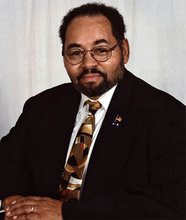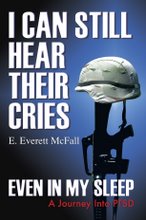Our Thanks to:
Walker Bennett, SF Author
June 03, 2008 03:54 PM EDT
"A loud noise still makes me dive for cover 36 years later. When I
lived in Louisville, Ft. Knox was 40 miles away. When they had
tank target practice, I'd spend a lot of time under the table."
http://www.washingtonpost.com/wp-dyn/content/video/2008/05/30/VI2008053002640.html?sid=ST2008060203019
By Ann Scott Tyson
W ashington Post Staff Writer
Tuesday, June 3, 2008; Page A01
Wounded Soldiers Housed Next to Firing Range
More than 170 soldiers with physical and mental wounds such as
post-traumatic stress disorder are housed across the street from
a string of firing ranges at Fort Benning, Ga., one of the Army's main
training bases. Several soldiers with PTSD said the loud gunfire at
day and night startles them and keeps them on edge and wake,
harming their recovery.
FORT BENNING, Ga. -- Army Sgt. Jonathan Strickland sits in his
room at noon with the blinds drawn, seeking the sleep that has
eluded him since he was knocked out by the blast of a Baghdad car
bomb.
Like many of the wounded soldiers living in the newly built "warrior
transition" barracks here, the soft-spoken 25-year-old suffers from
post-traumatic stress disorder. But even as Strickland and his
comrades struggle with nightmares, anxiety and flashbacks from
their wartime experiences, the sounds of gunfire have followed them
here, just outside their windows.
Across the street from their assigned housing, about 200 yards
away, are some of the Army infantry's main firing ranges, and
day and night, several days each week, barrages from rifles and
machine guns echo around Strickland's building. The noise makes
the wounded cringe, startle in their formations, and stay awake
and on edge, according to several soldiers interviewed at the
barracks last month. The gunfire recently sent one soldier to the
emergency room with an anxiety attack, they said.
"You hear a lot of shots, it puts you in a defensive mode," said
Strickland, who spent a year with an infantry platoon in Baghdad
and has since received a diagnosis of PTSD from the military. He
now takes medicine for anxiety and insomnia. "My heart
starts racing and I get all excited and irritable," he said, adding
that the adrenaline surge "puts me back in that mind frame that I
am actually there."
"Fort Benning is a training unit, so there is gunfire around us all
the time," said Elaine Kelley, a behavioral health supervisor at the
base hospital. If a soldier had a severe problem, it would have
been identified, she said.
Lt. Col. Sean Mulcahey, who recently took command of the
Warrior Transition Battalion, where wounded soldiers are
assigned, said: "No soldier has talked with me about the ranges."
If it is an issue, "we will address it," he said, stressing that the
battalion's mission is " getting those soldiers to heal."
Under Army rules, commanders of warrior transition units are
supposed to enforce "quiet hours." Officials said the location of the
barracks for wounded soldiers, along with a $1.2 million Soldier and
Family Assistance Center, was chosen for its proximity to central
facilities such as the hospital. About 350 soldiers are assigned to the
battalion--including 176 who live in the barracks near the ranges--
where they stay an average of eight months, Mulcahey said. An
estimated 10 to 15 percent of the soldiers have PTSD, he said.
Soldiers interviewed said complaints to medical personnel at
Fort Benning's Martin Army Community Hospital and officers in
their chain of command have brought no relief, prompting one
soldier's father to contact The Washington Post. Fort Benning
officials said that they were unaware of specific complaints but that
decisions about housing and treatment for soldiers with PTSD
depend on the severity of each case. They said day and night
training must continue as new soldiers arrive and the Army grows.
The soldiers are part of a growing group of an estimated 150,000
combat veterans of the wars in Iraq and Afghanistan who have
PTSD symptoms. The mental disorder has been diagnosed in
nearly 40,000 of them.
PTSD symptoms include flashbacks and anxiety, and noises such as
fireworks or a car backfiring can make sufferers feel as though they
are back in combat. Health experts say that housing soldiers near a
firing range subjects them to a continual trigger for PTSD.
"It would definitely traumatize them," said Harold McRae, a
psychotherapist in Columbus, Ga., who counsels dozens of soldiers
with PTSD who are at Fort Benning. "It would be like you having
a major car wreck on the interstate" and then living in a home
overlooking the freeway, he said. "Every time you hear a wreck
or the brakes lock up, you are traumatized."
Fort Benning, which covers more than 180,000 acres, is one of
the Army's main training bases, with 67 live-fire ranges. The base
has thousands of housing and barracks units. "There is no excuse"
for the housing situation, said Paul Ragan, an associate professor
of psychology at Vanderbilt University, who treats veterans with
PTSD. "Charitably put, it's very untherapeutic."
CONTINUED Next >
For more information
The toll-free Veterans Affairs Department Suicide hotline number
is 1-800-273-TALK (8255).
Veterans Affairs Department: http://www.va.gov/
Iraq and Afghanistan Veterans of America: http://www.iava.org/
------------------------------------------------>
Flashback, Posttraumatic Stress Disorder, Suicide,
and the Lessons of WAR-- by Penny Coleman
and---> I Can Still Hear Thier Cries, Even In My Sleep
... A Journey Into PTSD --By E. Everett McFall
Both Books are Available on Amazon.com
Tuesday, June 3, 2008
Subscribe to:
Comments (Atom)






